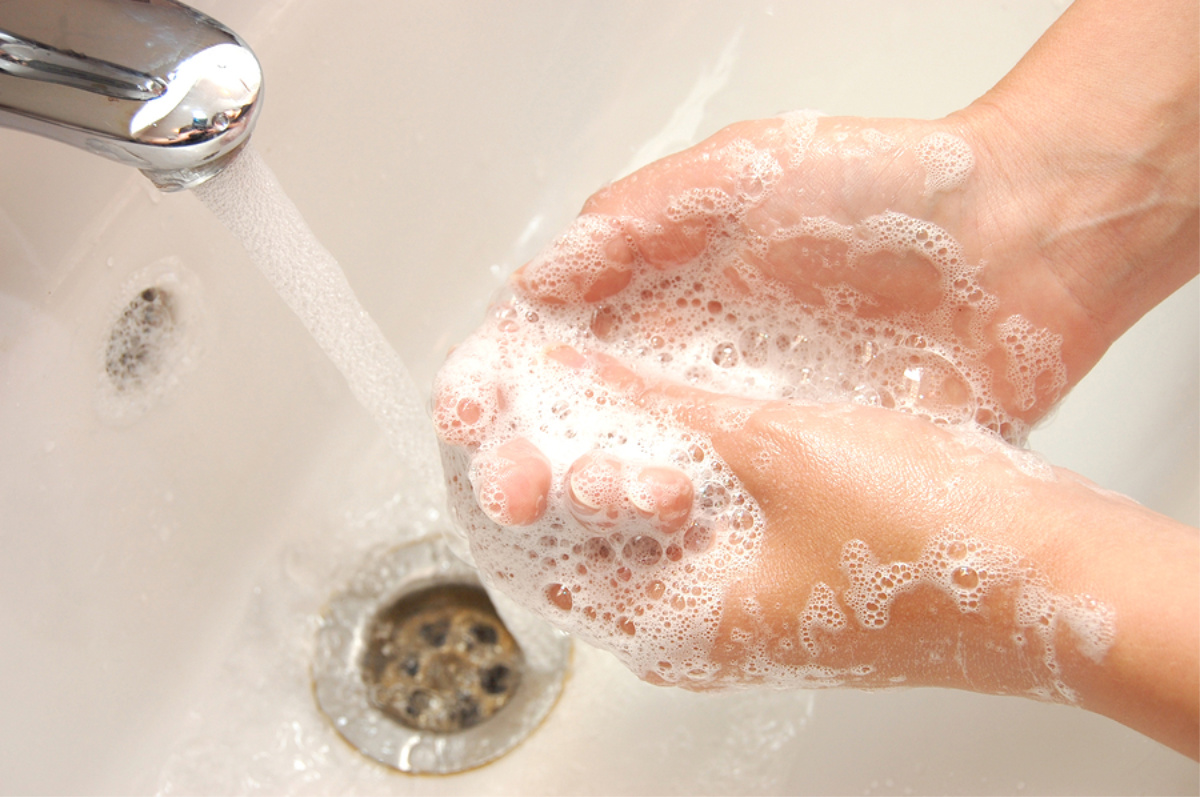Preventing infections is one of the most important things that family caregivers can do for their loved ones to keep them out of the hospital and feeling their best.
Older adults – especially frail adults, or those with multiple medical conditions – tend to have weaker immune systems. They can’t fight germs as well, so when infections take hold, they can wreak havoc in an older adult’s body. A third of all seniors over the age of 65 die from infectious illnesses. By learning some of the basics of preventing infections, family caregivers can make a big difference in the health and well-being of their loved ones.

1: Wash Your Hands
Washing your hands well and often is the single most effective way to stop the spread of infection. Wash your hands with soap and water anytime you’ve been away from home, before preparing food, and before touching any open wounds or catheter. Wash your hands after using the bathroom, blowing your nose, or contacting any bodily fluids (yours or theirs).
To wash hands properly, start by rinsing them with warm running water. Keep your hands lower than your elbows, and use liquid soap (not bar soap) whenever possible. Bar soap can harbor bacteria, so if it must be used, be sure to rinse it off after each use. Be sure to scrub all parts of the hands, including each finger, fingernails, back of hands, palms and in between the fingers well.
2: Use Gloves Properly
Wearing gloves may be preferred for tasks such as emptying a catheter or bed pan, brushing teeth, or other tasks that put you in close contact with their bodily fluids. If gloves are worn, remember that dirty gloves can spread germs in the same way as dirty hands. Be sure to avoid touching anything that might become contaminated, remove dirty gloves as soon as the task is complete, and wash your hands well every time you remove gloves. Never wash or reuse disposable gloves.
3: Protect Vulnerable Skin
Help keep senior skin clean and dry by changing incontinent products promptly and using moisturizing lotion to keep the skin from becoming itchy. Scratching can lead to open areas and infections. Help your loved one change position frequently to protect their skin from developing pressure sores, which can easily become infected.
4: Promote Good Nutrition, Hydration and Sleep Patterns
Poor nutrition, dehydration, sleep disturbances and other conditions can weaken the body’s immune system, which makes it much easier for an infection to grow out of control. Help your loved one’s immune system stay as strong as possible by supporting a healthy diet with lots of fluids, and plenty of sleep.
5: Bring in Trained Support When Needed
Home care aides are trained in basic infection control measures. Many family caregivers find it incredibly helpful to have home care aides help out with some aspects of care for their loved ones, and it’s reassuring to know that the aides that come are trained and vetted by the agency in important skills, such as infection control. Home care aides can promote sanitation and help prevent infections in many ways, such as assisting with good incontinence care, skincare, and keeping the environment clean. Home care aides are professional, caring, and friendly individuals who enjoy caring for seniors.
If you or an aging loved-one is considering Home Care in Campbell, CA, please contact the caring staff at Reachpoint Home Care & Resources Inc. today. (408) 692-4110
Sources
https://www.redi-nurse.com/
http://ctadvrc.org/
https://www.redi-nurse.com/

